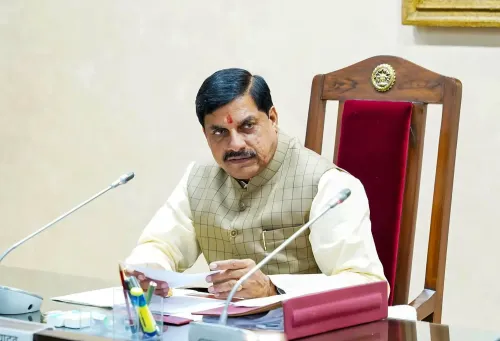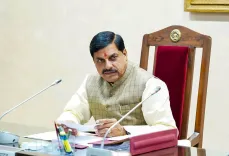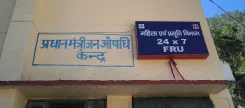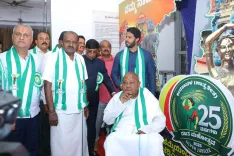Jagdambika Pal Questions Rahul Gandhi's Moral Authority on Waqf Amendment Bill
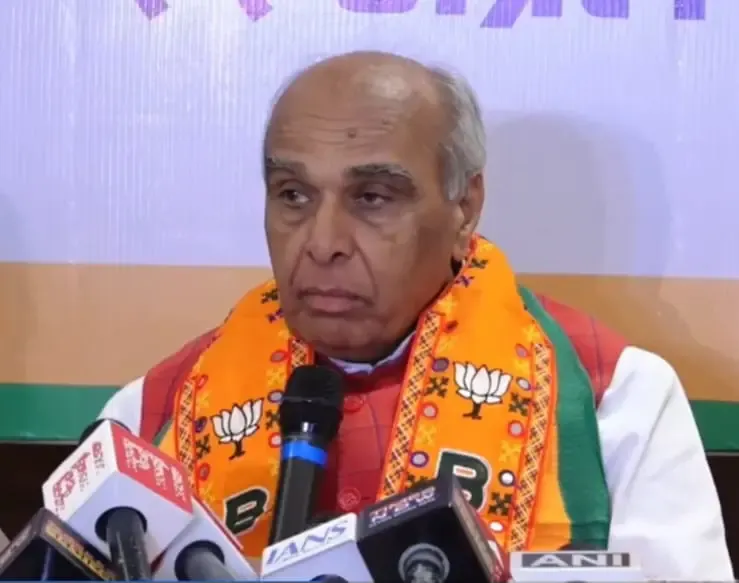
Synopsis
Key Takeaways
- Pal questions Gandhi's participation in the debate.
- The Waqf Amendment Bill removes Section 40 from the Waqf Act.
- Pal offers dialogue on the Bill's constitutionality.
- He emphasizes the importance of transparency in managing Waqf properties.
- Claims of state-sponsored violence in Murshidabad are raised.
Mumbai, April 22 (NationPress) BJP MP and Chairman of the Joint Parliamentary Committee (JPC) on the Waqf Amendment Bill, Jagdambika Pal, on Tuesday, took aim at the Lok Sabha Leader of Opposition (LoP) Rahul Gandhi for his absence in the parliamentary debate while labeling the Bill as unconstitutional.
"If Rahul Gandhi is labeling the bill unconstitutional, then as a JPC Chairman, I must point out that he did not engage in the 12-hour debate held in Parliament. As LoP, what responsibilities does he hold towards the nation and the electoral populace? If the government and the Treasury bench are accountable for this Bill, then the Opposition shares equal responsibility. If he has not participated, he lacks the moral authority to deem it unconstitutional," Pal stated at a press conference following a public assembly.
"Should anyone in the JPC or any other party assert that the Bill is unconstitutional, I am open to discussions with them," he added.
He mentioned that the Waqf Amendment Bill introduced a provision that completely removes Section 40 from the Waqf Act of 1995, which enabled the board to gather information about any property believed to be Waqf property.
Pal claimed that the Congress-led UPA government had included Section 40 in 2013 right before the general elections notification.
He explained that the removal of Section 40 was intended to streamline the powers of the Board.
The objective was to ensure that Waqf properties are declared only after adhering to due process, he asserted.
The JPC Chairman emphasized that the Union government could have advanced the Bill for parliamentary passage based on its majority but chose not to, as it was passed following a debate.
He noted that there have been no protests nationwide except in Murshidabad, West Bengal.
"Why did violence erupt? Had the police been vigilant, it could have been prevented. For several days, incidents of arson and violence occurred. A significant number of Hindus were compelled to flee from Murshidabad to Malad by crossing the river. If mob lynching happened, it was a state-sponsored act of violence," Pal alleged.
He accused certain factions of attempting to mislead Muslims, similar to the situation surrounding the Citizenship Amendment Act or the abrogation of Article 370.
Pal stated that the Waqf Amendment Act has become law and that West Bengal Chief Minister Mamata Banerjee has no authority to reject its implementation, which he deems unconstitutional.
"Such statements from Mamata Banerjee are politically motivated, aimed at the upcoming Assembly elections next year," he remarked.
He confirmed that the Waqf Amendment Act seeks to bring transparency, digitize records, and enhance the management of Waqf properties to benefit marginalized Muslims, specifically Pasmanda Muslims, women, and orphans.
He contended that it rectifies past mismanagement and ensures Waqf properties fulfill their intended charitable role.

